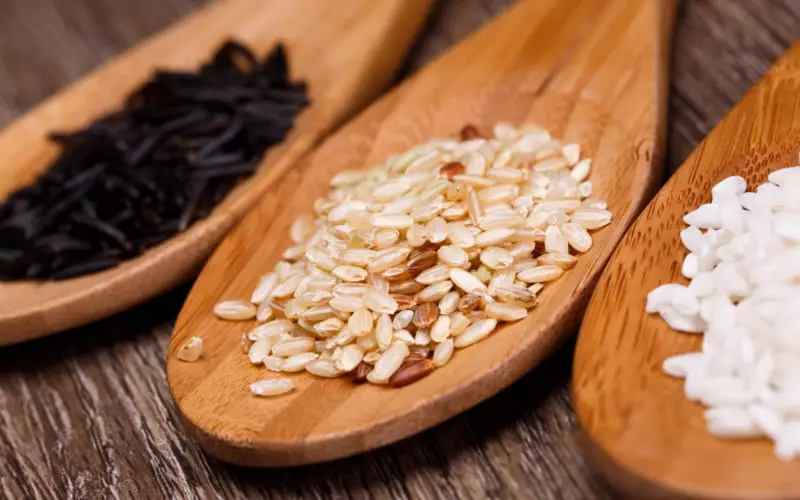
Grapes are delicious fruits that you can have with every meal: for breakfast, as a snack, in a smoothie, on your charcuterie board, as a dessert… And the options don’t end there! Red or green grapes are fermented and used for the production of red wine and white wine.
Besides, grapes are packed with vitamins, minerals, fiber, powerful antioxidants, and other plant compounds. Together, that makes these fruits a healthy choice, with plenty of possible health benefits, including healthy bones, lower blood sugar levels and reduced risk of heart disease, oxidative stress, high blood pressure, blood clotting, and chronic diseases.
This article will guide you through the 9 health benefits of grapes, tips on including them in your meals, and how many grapes are to eat per day.
Let’s get started!
Health Benefits of Eating Grapes
Rich in Vitamins and Micronutrients
Let’s talk about grapes’ nutrition facts. Grapes are low in calories, rich in healthy dietary compounds, grape polyphenols, and contain the following micronutrients [1] :
- Vitamin A
- Vitamin C
- Vitamin E
- Vitamin K
- B group vitamins (B1, B2, B3, B5 and B6)
- Potassium
- Copper
- Manganese
- Magnesium
- Iron (non-heme)
These nutrients are closely associated with various health benefits!

May Help Support Immune System
Red grapes contain abundant amounts of resveratrol, which is a natural polyphenol. And according to researchers from Linus Pauling Institute at Oregon State University, resveratrol found in red grapes may provide immune system support to the human body, and in this way, improve the body’s resilience to pathogens, viruses, and harmful microorganisms. [2]
May Improve Heart Health
According to a 2020 paper published in the Journal of Clinical Medicine, the polyphenols in grapes may positively affect cholesterol and lipid profile by reducing the total cholesterol, LDL (bad cholesterol), and triglyceride levels. [3]

May Help Lower Blood Pressure
A 2017 study published in the Journal of the American College of Nutrition suggests that the consumption of whole red grapes, as well as red grape juice, may reduce resting blood pressure levels and improve post-exercise hypotension in people with hypertension. [4]
May Support Weight Loss
Evidence suggests that resveratrol found in grapes may reduce the risk of fatty liver and insulin resistance development while improving metabolic rate (burn more calories) and physical performance in mice. [5]
However, more research is needed to see whether resveratrol may have similar effects on the human body.
According to a 2020 paper published in the Obesity Facts Journal, grape seed proanthocyanidin extract may reduce fat deposition, help people reduce their daily food intake, improve insulin sensitivity, and reduce the overall risk of obesity development. [6]

May Help Balance Blood Sugar
General dietary guidelines for type 2 diabetes and metabolic syndrome include the consumption of foods with low glycemic load (GL) and low glycemic index (GI), as such foods may improve the symptoms of this condition.
A 2009 paper published in the Journal of Nutrition suggests that grapes are not only low GI and GL, but the polyphenols found in these fruits (e.g., stilbene resveratrol, flavanol quercetin, catechins, and anthocyanins) may also help balance high blood sugar levels and support healthy insulin production. [7]
May Lower The Risk of Type 2 Diabetes
Furthermore, a 2013 review paper found that the consumption of grapes, along with blueberries, apples, bananas, and grapefruits, may be associated with reduced risk of type 2 diabetes development. [8]
Furthermore, grape consumption was found to have a slight protective effect against early memory decline. [10]

May Support Eye Health
Researchers at the Bascom Palmer Eye Institute at the University of Miami Miller School of Medicine found that regular consumption of grapes may play a role in supporting eye health by preserving the structure and function efficiency of the retina (part of the eye that sends information to the brain and enables you to see). [11]
May Protect Against Some Types of Cancer
According to a 2009 review paper published in the Journal of Nutrition, regular grape consumption may have chemoprotective and anticancer effects. [12]
The source suggests that whole black grapes may play a role in colon cancer prevention, and grape seed extract may be associated with reduced risk of prostate, skin, colorectal, and breast cancer. What is important to mention is that the study emphasizes the fact that a healthy diet rich in fruits and veggies with antioxidant properties is generally related to lower risk of cancer development, compared to a diet rich in processed foods, saturated fats and refined grains.

How Much to Eat
Following the official recommendation by USDA, try to stick to 1-1.5 cups of fruit per day.
Grapes may be healthy, but eating too many of them doesn’t mean that you’ll benefit more from their healthy properties. That is why it is important to measure your fruit portions and to consume fruits in moderation. [13]
How to Eat More Grapes
Here are 5 tips that can help you include grapes into your menu:
- Add grapes to your leafy greens salad
- Add them to your oatmeal or breakfast bowl
- Sprinkle them on your charcuterie board
- Blend them into a smoothie together with other fruits and veggies
- Freeze grapes to make a refreshing snack
- Make grape jelly








